|
Death and the Maiden - Wisteria Hello. My name is Mike and I am a Danny Brady-aholic. Last year he was involved with my #2 record of the year, the minimalist-electro band Élan Vital's brilliant debut "Shadow Self", and now he is involved in my "so-far" top pick for 2018 with Death and the Maiden's sophomore disc "Wisteria". Sparse instrumentation, drum machine beats, ethereal vocals, catchy songs and smart lyrics tie this into one hell of a package. Imagine combining both of Henry Frayne's bands (Area and The Moon Seven Times) with Lorde on vocals. Comparisons to her will be made on Lucinda King's voice and not just because DatM also hail from New Zealand. And yes, that is a compliment. Their music is so slick and refined. The vocals are elegant. This is smart pop. This is what should demand attention rather than the formulaic tripe passing as popular music now. Leading off this opus with the title track easing up into your speakers, you quickly find the groove and get lost in Hope Robertson's repeating guitar line as the beat makes your head swim but allows you to be just far enough above the water to take in the lilting vocal. The absurdly named "Oooh Baby in the Chorus" is the highlight of the album. Chiming instrumentation churning around the central lyric, "Everything is wrong around us". Dance-ably downtrodden. 'River Underground' is a track begging for a Tricky remix. The album closer "Everything is Stressful" does feed you a full teaspoon of tension complete with the aftertaste. It builds into the albums biggest bang leaving you with a fade out of bass fuzz in your ear but the sweet smell of Wisteria in your nostrils. Death and the Maiden's new record Wisteria is available now from www.fishriderrecords.com/ and via Bandcamp Follow them on Facebook. 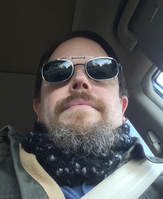
Michael Mitchell's love of music started at an early age and slowly became an addiction that courses through his veins to this very day. It is guaranteed that if you are in his proximity that he will try to get you to travel to the nearest record store and make you buy beyond your means. His wife and two children acknowledge his problem and continue to encourage him into rehab.
7/25/2018 Poetry By Mela Blustimpetus my body was a mountain once but you made it just a hill because my vast panorama was for you a bitter pill to swallow my body was a river taking me to greater things you dammed me up like I was mud yet I bubbled up like springs because my body was a vessel my mind the force inside it if you want something you can cage you’ll have to go and find it fairy tales does the king of birds always love a girl made of glass? slamming into her invisible wall a thousand times before blinking marrow tears and flying away ? the preying mantis fucks whichever boy she wants, rips his head off and eats it after she is satiated. priorities and days unfolded, life not stopping despite all the little deaths. and the deathbed of her hymen was a place where flowers bloomed; if only to be plucked again and again by men on their way somewhere else.  Mela Blust is a writer and artist from the south, who currently resides in rural Pennsylvania. Her work has appeared in Nixes Mate Review, Califragile and Little Rose Magazine, and is forthcoming in Rust+Moth, Abstract Magazine, The Magnolia Review, Ink in Thirds, and Third Wednesday Magazine. The way we hold space for ghosts. I carry an acorn in the pocket of my jeans and its small form is a binding oath that I use to evict spiritual entities. Out of the corner of my eye, I saw the brownish cap and the green body and I picked it up and kissed it like I was Peter Pan or Wendy or whoever fucked with that thing in the story. It seems like finding acorns has become rarer and rarer these days. If this isn’t a vessel for fastening a demon by oath, I don’t know what is. Its cup-shaped shell serves as a reminder of the day I was first freed from thoughts of your ghost. And during that instant, I was happy—the leather body commanded my presence out of a fog of thought. But negative contemplations are like shitty specters, swooping in like smug Draculas swooshing out from behind a curtain and it was no different following the acorn kiss. Clouds of reflections blotted the brief happiness and the plunging weight dragged down my shoulders. I hunched my bird's wings in an arc to protect my heart. The problem with ghosts is that there’s no amount of space – within me or without me – that they can’t take up. They’re feelings without feeling and I have yet to learn the mechanics of holding onto an outline. I’m scared I’ve grown used to your hauntings. The breaks in my body are how I hold space for ghosts. Memories are a philter that I can’t help but drink from. *** I set a dinner for lonely suppers. Hot pans on the end table leave rings in the starch of the wood accompanied by plastic ladles that I eat out of—spoon feed myself whatever slush I heated up. Ghosts can eat wherever and whenever they want and I feel unseen and alone as I try to swallow meals that are all too salty with un-cried pride. Hunger is how I hold space for you and I continue to save you a seat at this table. I’m told that a fatty acorn can make a meal, sort of like almonds. Maybe the shell I carry with me is an icon filled with the banquet of our history. I wonder if eating the acorn is the ritual that will release you, but I’m no fucking Jesuit and I don’t want to anger the authority of the amulet. So it stays in my pocket. *** There was a time when I wasn’t afraid of the buzz of text messages and anticipated their vibrations like a pulsing heartbeat. Bzzz bzzz bzzz. Friend. But ghosts can’t type messages with their tree branch fingers and the silence is loud. I text “Me” to my own phone number so when I get the message back I know that I’m still alive. 8:45 AM: Me / Me, 2:56 PM: Me / Me, 7:27 PM: Me / Me, 5:15 AM: Me / Me, 6:00 AM: Me/ Me, 6:05 AM: Me / Me. I don’t know how shadows communicate, but the thunderous hush of an empty phone makes the silhouette of you ever present. Now, I shrink from the sound of the occasional hum because I know it’s never going to be who I want it to be. In absentia, you’ve learned new tricks. Your ghost is inescapable and it takes up space in the cavities of my insides. Is the acorn an exorcism or is it a tree that grows you ever larger? Has connecting you to a symbol I carry kept you flowering? Lots of time, I wonder if I can ever out run anything, should I even try. You flourish even in death. So, I hold steadfast to the gift from above and maintain that it is a harbinger of future freedoms. A mini cauldron to contain the negative floaty species you’ve become. If I knew how to drive I would keep the passenger seat buckled all the time. Safety options for spirits. But since I don’t know how to drive, I walk everywhere with the storm of nostalgia whipping up a tornado that engulfs my whole body. Walk walk walk. Sometimes, there are whole hours I can go without thinking of the past as feet pass over pavement with jelly legs. Remembering that I’ve forgotten makes me so grateful I say a prayer of thanks to a clock, but it’s only moments until I’ve remembered that I forgot and then I remember again. We make room for ghosts by shaping time into an unbearable ouroboros. You are a belt wrapped around my body. Fatigued soles and I head back home, the medium in my pocket rattles. *** The earth’s magnetic field is dragging westward and I think that maybe with the earth moving, I might as well hustle out of here, too. Move west with it. If the earth can move forward, why shouldn’t I? Restaurants and shops and parks and fast food spots are cratered with shades of you. Those places are covered in cobwebs, darkened with the ash of what remains when a person becomes a ghost. If I leave my home will I be free of phantoms? The leaden feeling in my chest is your apparition and I’ve been embracing that weight for so long I wonder if its absence will leave me even more orphaned. But I’m willing to exercise you from the space inside, move my whole body away and follow the earth’s lead. I hold the acorn in my hand, I press it against my mouth. I will the acorn to be the instrument of your exorcism. Make it a spiritualist that will trap and change your ghost into a tree, or a memorial plaque, or a meal like almonds, or a dent of silence that puckers in a distant memory shriveling in on itself and eliminating the pockets and passages of a space once saved for you.  Jane-Rebecca Cannarella is the editor of HOOT Review and Meow Meow Pow Pow Lit. She was a genre editor at Lunch Ticket, as well as a former contributing writer at SSG Music and Sequart: Art & Literacy. When not poorly playing the piano, she chronicles the many ways that she embarrasses herself at the website www.youlifeisnotsogreat.com. 7/23/2018 Volcano By Darling FitchVolcano "The economic position is only flourishing on the surface. Germany is in fact dancing on a volcano." -Gustav Stresemann, 1929 How do you love a city that's all surface A proud layer of grime on the window of a train That rumbles uneven circles around and around A lumpy public drunkenness you can no longer afford How do you love a city that will stare and stare But never make eye contact A city where the myth of walking home un-accosted Still seals the lips of anyone longing for sympathy A city that knows you're hurting And likes it that way A city on the shit-end of a new beginning Controlling austerity with rolled up notes How do you love a city that tore down its wall And replaced it with a thousand bouncers Death strip throbbing with bad techno And heads throbbing with the Kopfschmerz of Furtive bumps off keys soon to be lost Somewhere between never-ending supposed utopia And puking in the canal Where Rosa was killed for trying to lift the lid off A city that still thinks it's better than America How do you love a city that never finishes what it started, Just moves on to something worse A city of cultural Zwischenmiete Where predetermined eviction of dreams and bodies is public knowledge And no one is wanted for too long Every previous inhabitant a ghost Paradise lost her mind playing in the shell Of a city cleared by investors and a genocide that's too cliche to mention But the streets are gold with it The whole of this city is dancing Uneven circles around and around On the edge of itself At the center of everything It claims to keep distant Dangling marionettes over errant flames And waiting for the inevitable drop To really get the party started 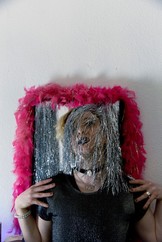 Darling Fitch is an American-born, Berlin-based writer, musician and performance artist whose compositions often grapple with issues of collective and individual identity. Their work has appeared in festivals internationally, including the Dixon Place HOT! Fest, the Edinburgh Festival Fringe, and the Month of Performance Art – Berlin. In addition to performing regularly in Berlin and abroad, Fitch runs the local performance series Yes/No/Other/All: Performance on the Boundaries of Identity. www.darlingfitch.com Photo credit: Aurora Romano Photography 7/22/2018 Poetry By Mark YoungIn this age of digital displays—clocks beside the bed, in cars, on microwaves, ovens, phones, et al.—I find such signs as 11:11 or 7:47 or 12:34 quite talismanic. Wake up or walk into the kitchen or whatever & come across such a display & I think it's a good thing. Not necessarily propitious, but at least offering something positive. I have similar attitudes towards the chance sighting of particular birds, or the hearing of particular songs that have some sort of charge for me. I don't follow through on them, to check to see if they're prescient incidents, just note them in passing & move on. Enough that they've occured. Of late, however, they've become something more. Not premonitions, more akin to knots in a rope that provide handholds. I see them, hang on to them, refuse to let go until another one comes along. & they're no longer chance: I seek them out. As I write this, I have a YouTube track of Miles Davis' So What playing in a minimized browser. Nine more minutes of future I don't have to think about. A variant on Ernesto Priego’s Hubiera If yesterday the rain, even if falling ever so lightly, & we had gone out in it, bare- foot & naked, & just in case it never stopped raining we running so the ice spilled from the glasses we carried & melted making the run a little lighter, making the rain a little harder. Mark Young's most recent book is les échiquiers effrontés, a collection of surrealist visual poems laid out on chessboard grids, just published by Luna Bisonte Prods. Due out later this year is The Word Factory: a miscellany, from gradient books of Finland, & an e-book, A Vicarious Life — the backing tracks, from otata. 7/21/2018 Poetry By Colleen M. Farrelly asdcjasdcj: Flickr CC
5th Floor Support Another Thursday night, one of a string of Thursday nights lately starting with an 8 AM Grand Rounds neurology lecture at Jackson Memorial and ending across NW 12th Avenue at the VA Hospital. There’s a barricade and some benches near the lobby door where guys smoke before our support meeting. I see a couple of friends in the crowd —my generation—and sit next to an OIF friend fresh off a spinal surgery. curlicues of smoke wrap around the flagpole-- the past’s python feeding P. asks if I heard about last weekend’s Boston bombing and mentions his flashbacks to Ramadi. I’d frozen in my living room when the words flashed across CNN: ball bearings. At that moment, I knew what my fellow medics saw at the finish line: shattered bones, open chest cavities, fasciculations of amputated muscles… lunar eclipse-- drops from a shrapnel hole P. nods. J. looks towards the sliding doors behind us. It’s good that we’re headed to a meeting. I wheel P. past the visitor’s post to the elevator corridor and press 5—the behavioral floor. In the designated room, we hold hands and pray to start our meeting. nanotubules stronger linked together than apart #22aDay It’s a hashtag that’s circled the Veteran community lately and even has made it into the news. It’s only half the story, though. The tally doesn’t include suicide by cop or finding a friend cold with a needle in his arm. It doesn’t include drunk driving accidents or a dealer-related drive-by. Do not resuscitates. Barroom brawls. Neglecting a helmet or seatbelt. There are a lot of creative ways to die without the death counting in the tally. Living is harder. Aside from the well-publicized flashbacks or lost buddies on the battlefield, there’s the Facebook posts and late-night texts. Did you hear that X has died? Finding a friend face-down on the living room floor. Ten-month backlogs at the VA hospital. Revolving deployments of family and friends. Even hearing a professor or classmate rail against the military every other week. Life is harder. out of the rubble, a lily pokes through-- life winning Colleen M. Farrelly is a freelance writer and data scientist in Miami, FL. She's seen and experienced a few things over the years and enjoys passing it on to others. 7/20/2018 after your lobotomy By Holley Hylerafter your lobotomy smiling, with the personality of an oyster, you listened while I told you about you. you liked me better once you had forgotten me, and I wondered when you began to give up on me. what had done it? maybe it was when you realized that mandalas were used by Hindus and Buddhists; you hated the sacrilege that I committed with colored pencils. it is still manifesting, permanent ink on my arms, needles reminding me how it feels to not be flatlining, displaying who I am in such a way that I can no longer hide it. I feel more alive than ever before when I am naked. everything changed when you were taught to be ashamed of me. when you forgot your walls and why you had built them, when you forgot that I was a sinful child “going down an unhealthy path,” you looked at me, for the first time in a long time, with love in your eyes. all I wanted was for that look to last a lifetime. something precious was stolen from me, and from you too; the problem is I realize it and you don’t. you forgot you said, “you don’t give up on someone you love.” you thought it would cheer me up, but it didn’t. it only made me feel worse that you entertained the idea of giving up on me. and for what? for my spirituality? for my tattoo? if anyone should give up, goddamn it, it’s me.  Holley Hyler has been published in Adelaide, Buck Off Magazine, Rebelle Society, and The Urban Howl. She was a finalist in the 2017 Adelaide Literary Awards with her essay, “Nonlinear,” and again in 2018 with a poem entitled “Clytie.” She is passionate about sixties music and the guitar. You can find more of her work on her website, holleyhyler.com. 7/19/2018 Poetry By Steve KlepetarVapor Trails It’s only us, on the cusp of sleep, lost in sagging heat. We drown in our bed. Here in the furnace of night, we peel back the only skin we ever need. A shadow brushes past. We slide out, naked, free from breath and thirst. We drink the wind. We spring into air, flutter around the porch light, then sail across the dry yard, leaving vapor trails as we vanish into dark trees. Red Barn Road Wind Rises. Birds scatter among birch and pine. Thunder in the distance, lightning where the river winds south past the iron bridge. The heat breaks. Now rain lashes the house, whipping young trees which bow and bend. In the street, dark water reflects a streetlight’s glow. Green Flame On the bridge, a woman leans against the railing, stares out at the tangle of woods on the far bank. Once she tiptoed above a waterfall, agile on slippery stones. Her features were lost in smoke, her hair loose in wet air. Her eyes burned like green flame. She waited for velvet night, speaking only the language of birds. 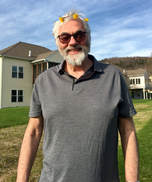 Steve Klepetar lives in the Berkshires, in Massachusetts. His work has appeared widely in the U.S. and abroad. The most recent of his fourteen collections include “Why Glass Shatters” and “The Coffee Drinker’s Son.” The importance of a story's viewpoint Waking to a blanked landscape offers an opportunity to see it differently. Your mother's story of your birth changes but repeats that you were early and healthy, so that becomes what your family remembers. Your father's story is more hesitant and rarely heard: you were the tiny, fragile baby, he carried in the palm of one hand. No one noticed you didn't speak because your mother spoke for you and you were so well trained not to interrupt her in public. And if you'd said anything? You were told you'd misunderstood, your mother had never said that. The silence at the heart of you became a space where you stored your deepest secret. Others thought that your landscape could be mapped as paths, trees, houses, while failing to notice this wasn't the view you'd drawn. Would you take advantage of the snow and use the altered landscape to reveal what hadn't been seen? Emma Lee’s most recent collection is "Ghosts in the Desert" (IDP, UK 2015), she co-edited "Over Land, Over Sea: poems for those seeking refuge," (Five Leaves, UK, 2015), reviews for The High Window Journal, The Journal, London Grip and Sabotage Reviews and blogs at http://emmalee1.wordpress.com. 7/17/2018 Poetry By Kimberly Ann PriestA Reflection on Pathos Rabbits circle near our raspberry bushes searching for something to eat. My son reaches to brush his baby fingers over their backs and ears-- they freeze, startle, escape, the grass waving behind them like a soft crop of hair, a landscape so unmolested—perfect. Some say he looks like his father. I think he looks like me, every mite and particle; his thick brows and bold jaw demanding attention, but not the sort that most sons do. I taught him to be mine, to remember the consequence of matriphagy, how Eve guided mothers toward the importance of sons-- to let them consume, protect their fragile egos after ritual offering. And how this pathos favors touch. Silence in our most holy texts replaced with and he went to her and comforted her. Coping. Sex. Cain begotten in a shed behind the house where the tools for gardening are kept. When not in paradise, reads the sign above the door—an unfinished phrase. If only we knew beforehand what would come of our longings for Eden. What damage we would make. My son, a shadow of some image stumbling away from me. I pull his infant body to my body, cut his waist into my hip, point toward the bushes. He follows my reach with his eyes, observes the rabbits searching for insects in the grass. Against what we know of their nature, today they are craving fresh meat. A Tattoo is Inked Over Our Scars “. . . and the amaranth said to her neighbor, ‘How I envy your beauty and your sweet scent. . .’.” -Aesop, The Rose and the Amaranth Where our shoulders kiss: a soft coloring of pink spreading, blooming side by side—a single stalk. Petals bleed over our chests, across our backs—ivory, white, deeper shades of fuchsia: we are drunk with memory, reeling. I hold you steady with my unsteady hand, as we draw circles around the bruise of lung and spleen, of living body. Do not name this sorrow, I say, name this unfading instead. In paradise, we will call it Gethsemene, the place of ears, the blood of martyrs streaming down our necks. I tell you not to touch it—let it bleed across your jawline from where we share a mutual scare. Let the artist do his work, needle organs into place, whisper fortune—tell the one but not the other where these energies will lead once escorted from this place. You purchase silence and a pack of cigarettes. Smoke. The amaranth grows wildly inside us, burrowing its root into our limbs, feeding as it does on our complying—and we have been here long enough to know to breath first last, forget the sound our petals make when they ready themselves for dying, the garden growing with parasite. The last time you will look at a woman and see God. And God will see and call this good, this thing you do with your body, your left hand holding an ear, a startled pain, a knife—not mine clatters to the kitchen floor. You point in my direction, moaning. Our vanities flower and break.  Kimberly is the author of White Goat Black Sheep (FLP) and her poetry has appeared in several literary journals including The 3288 Review, Temenos, Storm Cellar, Borderlands: The Texas Poetry Review, The West Texas Literary Review, Windhover, Ruminate Magazine, Relief, RiverSedge and The Berkeley Poetry Review. She is an an MFA graduate of New England College, an English instructor, a book reviewer for NewPages, and an editor for the Nimrod International Journal of Poetry and Prose. Her writing explores trauma, sexuality, violence against women, motherhood, and displacement. |
AuthorWrite something about yourself. No need to be fancy, just an overview. Archives
April 2024
Categories |
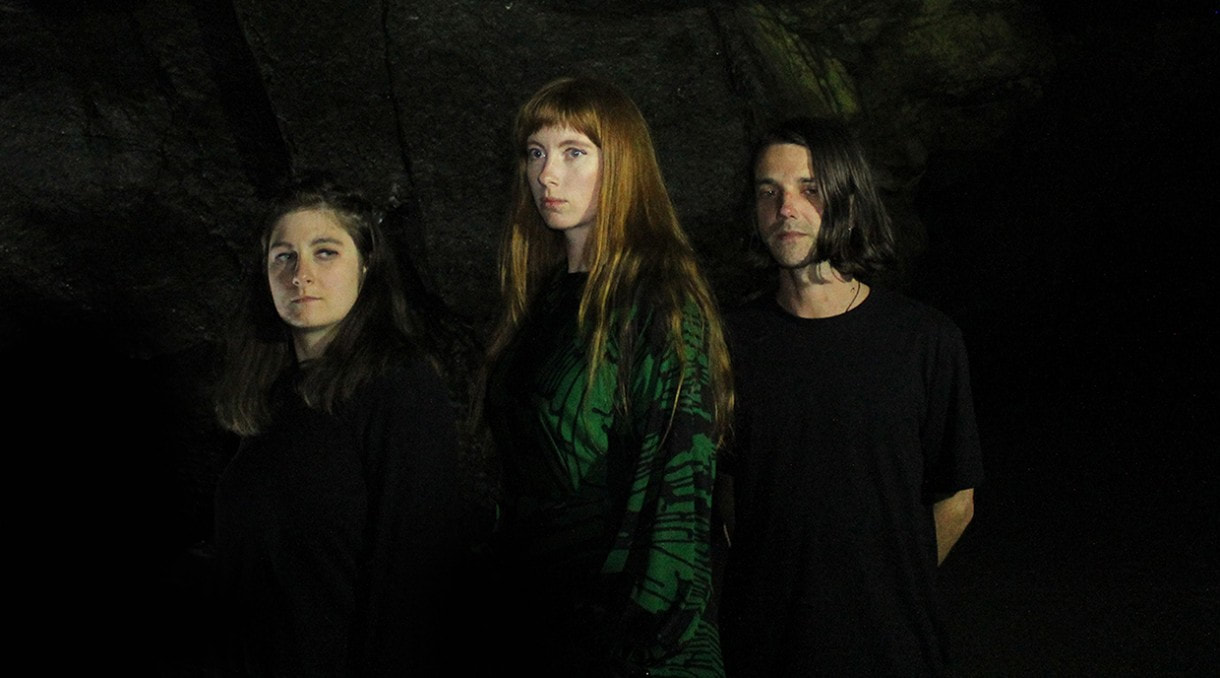
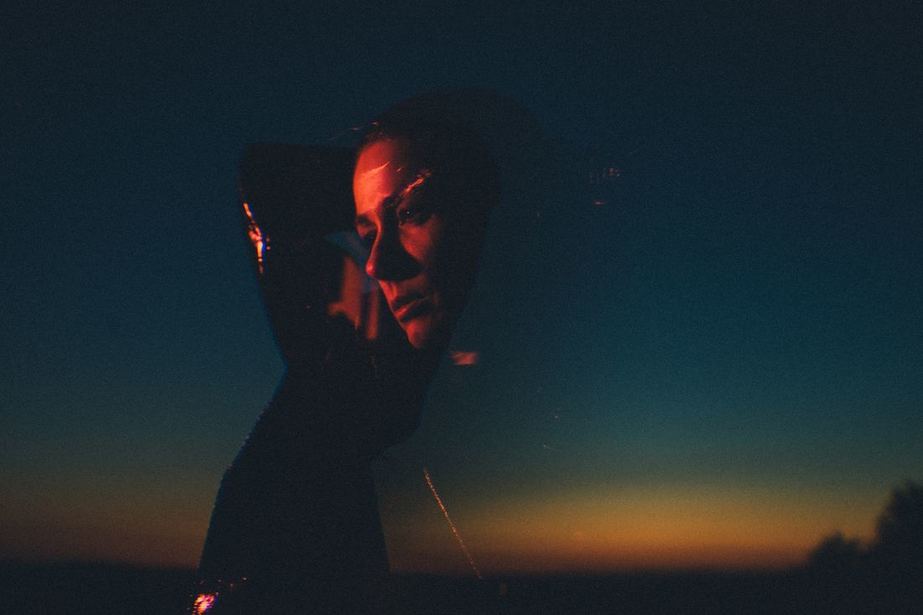
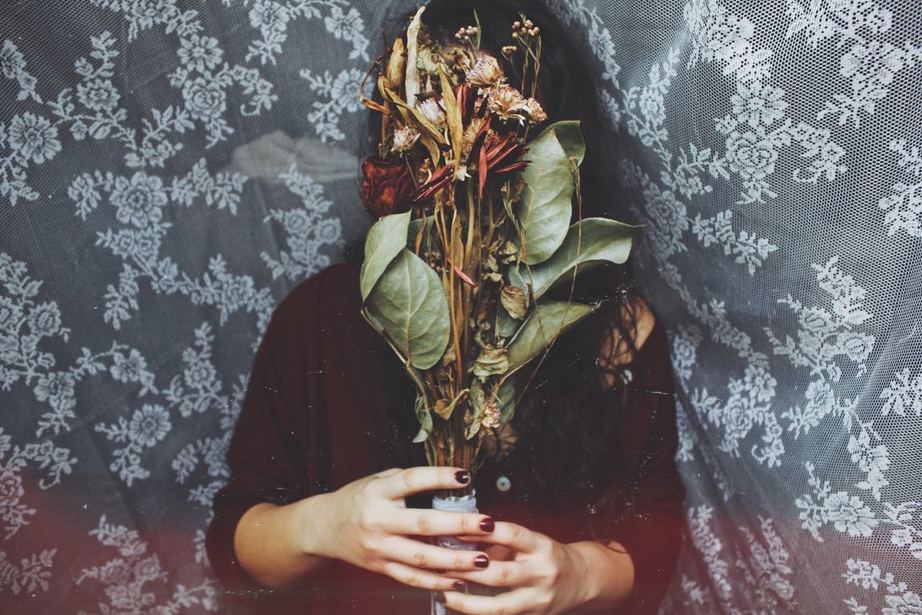

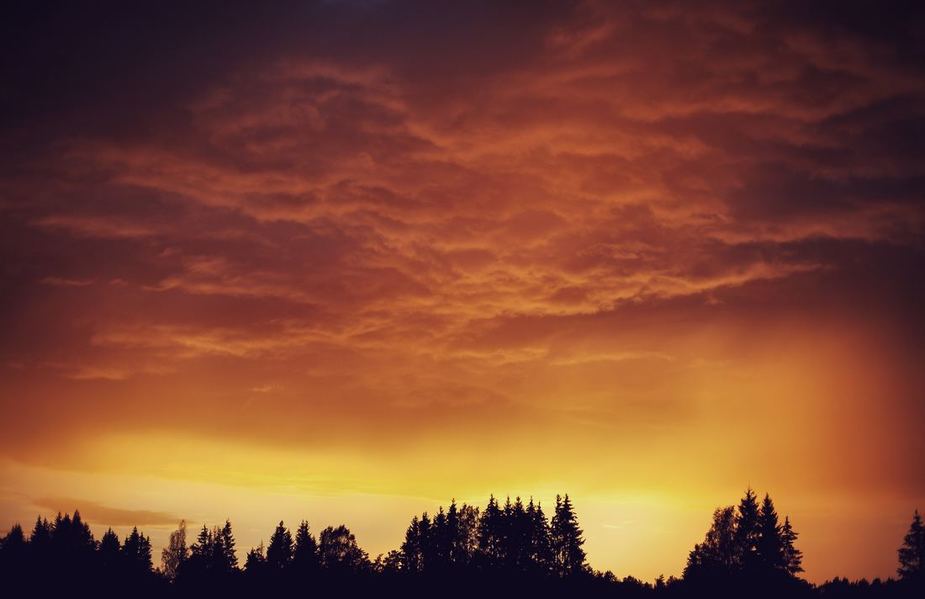
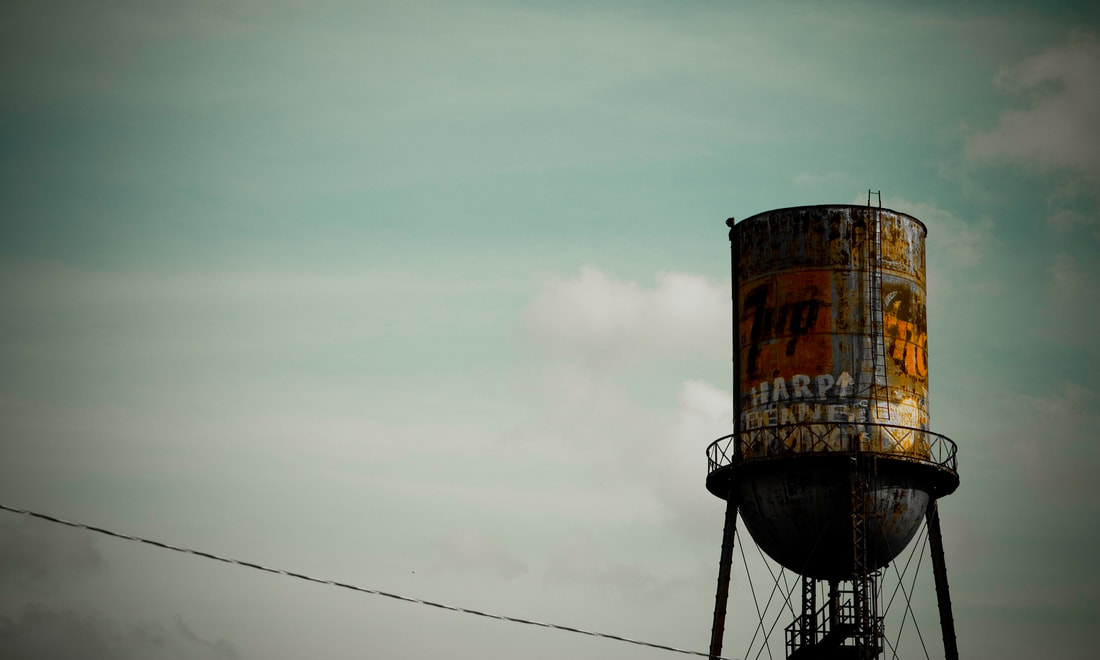

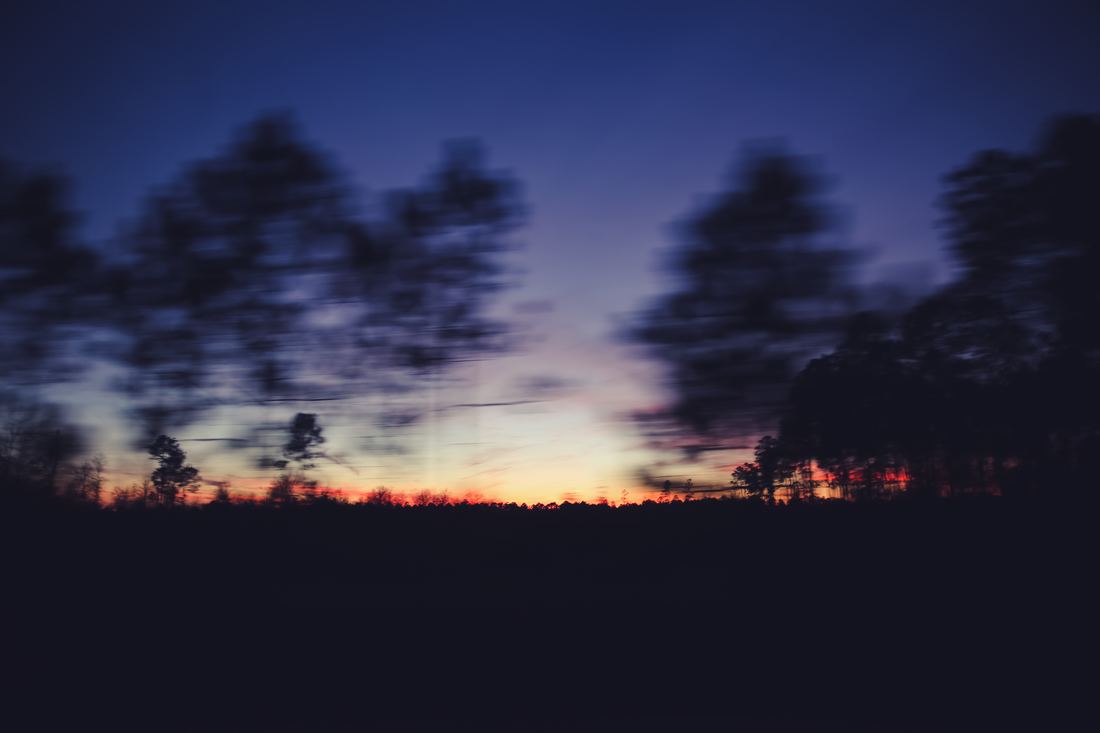

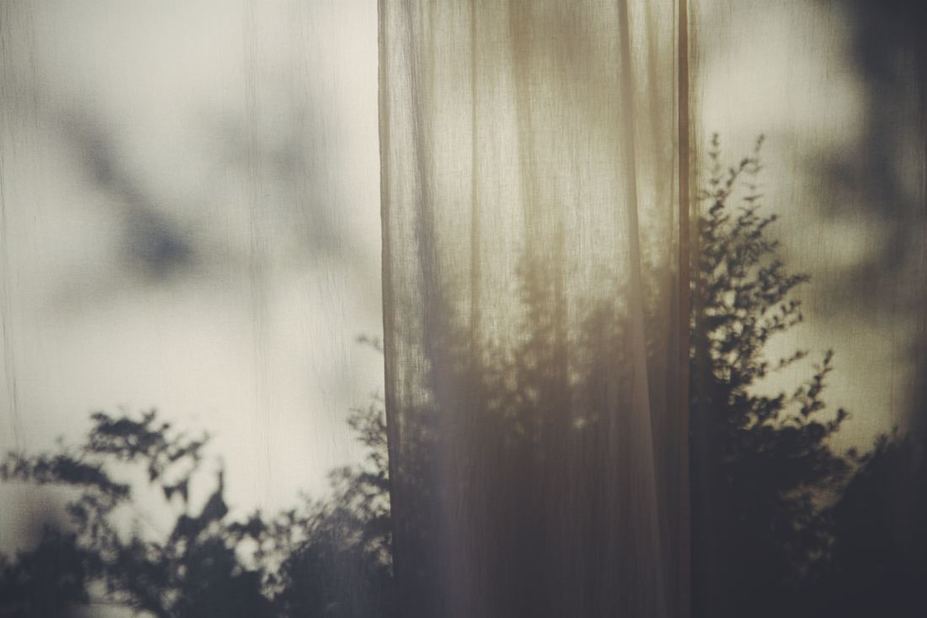
 RSS Feed
RSS Feed
